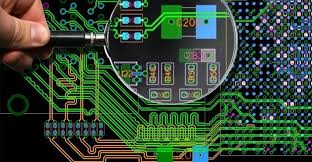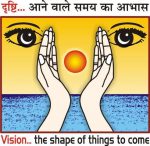
PCB Design
Learn Electronics and PCB Design from the Ground up with Altium Circuit Maker and Lab center Proteus.
Course Coordinator: Satyam Yadav & Rajesh Srivsatava
Course objective
· Students will be able to analyze and construct basic analog and digital circuits. Everything from filters and amplifiers to clocked and combinatorial digital circuits. As well as completely design printed circuit boards, assemble and get them up and running.
· Students will be able to leverage this knowledge to build and produce electronic products completely themselves.
· Students will learn how to use basic electronics lab equipment such as oscilloscopes, power supplies, signal generators, and more.
· Students will learn hands on techniques such as circuit construction with solderless breadboards, wire wrapping, and soldering.
Requirements
· Since the course is about electronics, to get the full benefit of the course, you will need to follow along and build the circuits. Thus, access to breadboards, power supplies, tools, parts, etc.
· Digital Oscilloscope or CRO, function generator, Altium Circuit Maker and Lab center proteus
Description
Crash Course Electronics was
designed for one thing — to take you from mystery to mastery in Electronics
and PCB Design. This massive course was custom made for those interested in
learning electronics from the ground up that wish to leverage that knowledge to
build actual printed circuit boards (PCBs). There is no other course like this
in existence that has the depth and breadth of Crash Course Electronics. The
course starts with atomic physics and the electron, before you know it you are
learning Ohm’s Law, circuit analysis, AC, DC, complex impedance, RC and RL
circuits, filters, amplifiers, transistors, FETs, analog
and digital theory — too much to list here!
But, unlike other courses that are highly technical and math based. Crash
Course Electronics was designed to be taken as a journey with the instructor.
Each lecture building on the last, each new concept like a new puzzle
approached in many different ways. The most complex topics and mathematical
concepts are distilled down into understandable lectures and we have a lot of
fun doing it! I had to learn this stuff at one point and remember how hard it
was, so I approach each lecture as if we are both learning for the first time
and make no assumptions about what you know or don’t know.
As we progress through the lectures, expect to see every circuit and idea worked out on the black board, virtually simulated (with Labcenter Proteus), and built by hand right in front of your eyes in high def, ultra clean video and audio. Not only will you learn all the theory and practical aspects of Electrical Engineering, but my 35+ years of experience with electronics will be downloaded to your brain with countless real-world tips and tricks that will take you from a hobbyist to a deep understanding of the subject matter.
Then when we have all the basic electronic theory under our belts, buckle in for something you have never seen — we will build, not one, not two, but three complete products! We will talk about the design, the motivation, look up parts, background information, and then design the circuits together like colleagues, lay them out in Altium CircuitMaker, route them, verify and produce manufacturing files. If that wasn’t enough, we will take those files and go out on internet and send them to a number of online manufactures and get them ready for production, all you have to do is hit SUBMIT!
Last, but not least — the course is based on my college text book “Design Your Own Video Game Console” aka “The Black Art of Video Game Console Design” — this 800+ page book is included free of charge (the PDF version) with the course. Although, we won’t be talking about game consoles in this course, we will be using the text for its theory, electrical engineering and PCB design chapters.
Who this course is for:
· Anyone interested in learning electronics and/or printed circuit board design.
· Programmers interested in learning about how the machines they code with actually work and the electronics inside them.
· Electrical or Computer Engineering students that would like to see what the major is all about end to end as a head start in their degree.
· Someone that is a hacker/hobbyist that has some experience with electronics, but wants to take it to the next level and obtain a much deeper understanding of electronics and circuit analysis/design.
Course Structure
The ECPD100 (Electronics Circuit PCB Design) course contains nine modules. After completing the first eight modules, the students have to do a six Hours project towards the requirements for the award of PG Diploma in ECPD.
| ECPD 100 | Module Name | Duration (Hours) |
| ECPD 101 | Fundamentals of Electronics | 3 |
| ECPD 102 | Diodes, Characteristics of Diodes, Classification of Diodes, | 2 |
| ECPD 103 | Transistors, Classification of Transistors, BJT characteristics | 2 |
| ECPD 104 | JFET & MOSFET Characteristics, Transistor Amplification Circuits | 3 |
| ECPD 105 | OP Amp, Basic Characteristics of OP Amp, Feedback circuits, Introductions to Digital circuits. | 2 |
| ECPD 106 | Fundamentals of circuit design | 2 |
| ECPD 107 | PCB Concepts and Materials Preparing a Schematic Laying Out the Board | 2 |
| ECPD 108 | Manufacturing Assembling the Board | 2 |
| ECPD 109 | Project | 6 |
| Total | 24 |

